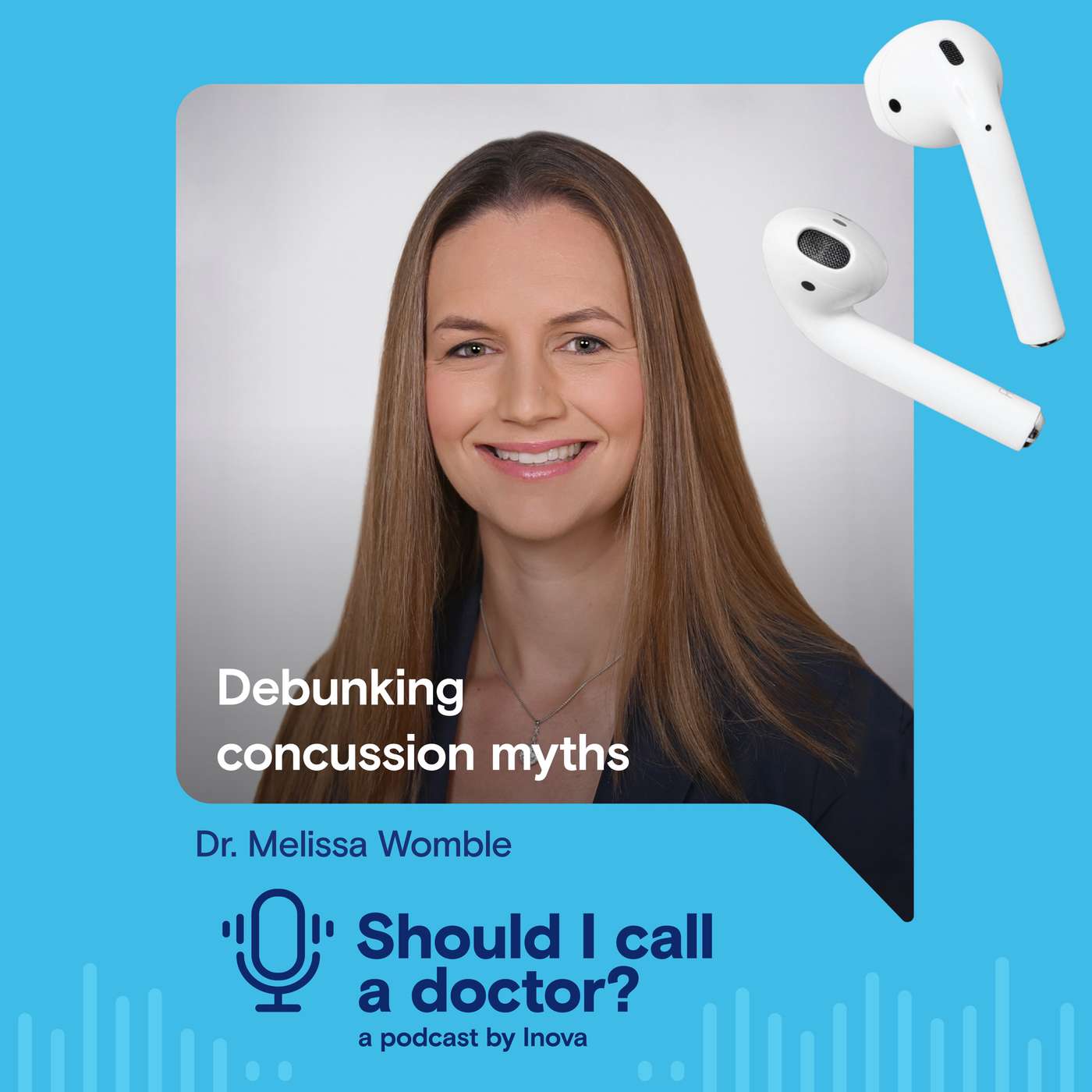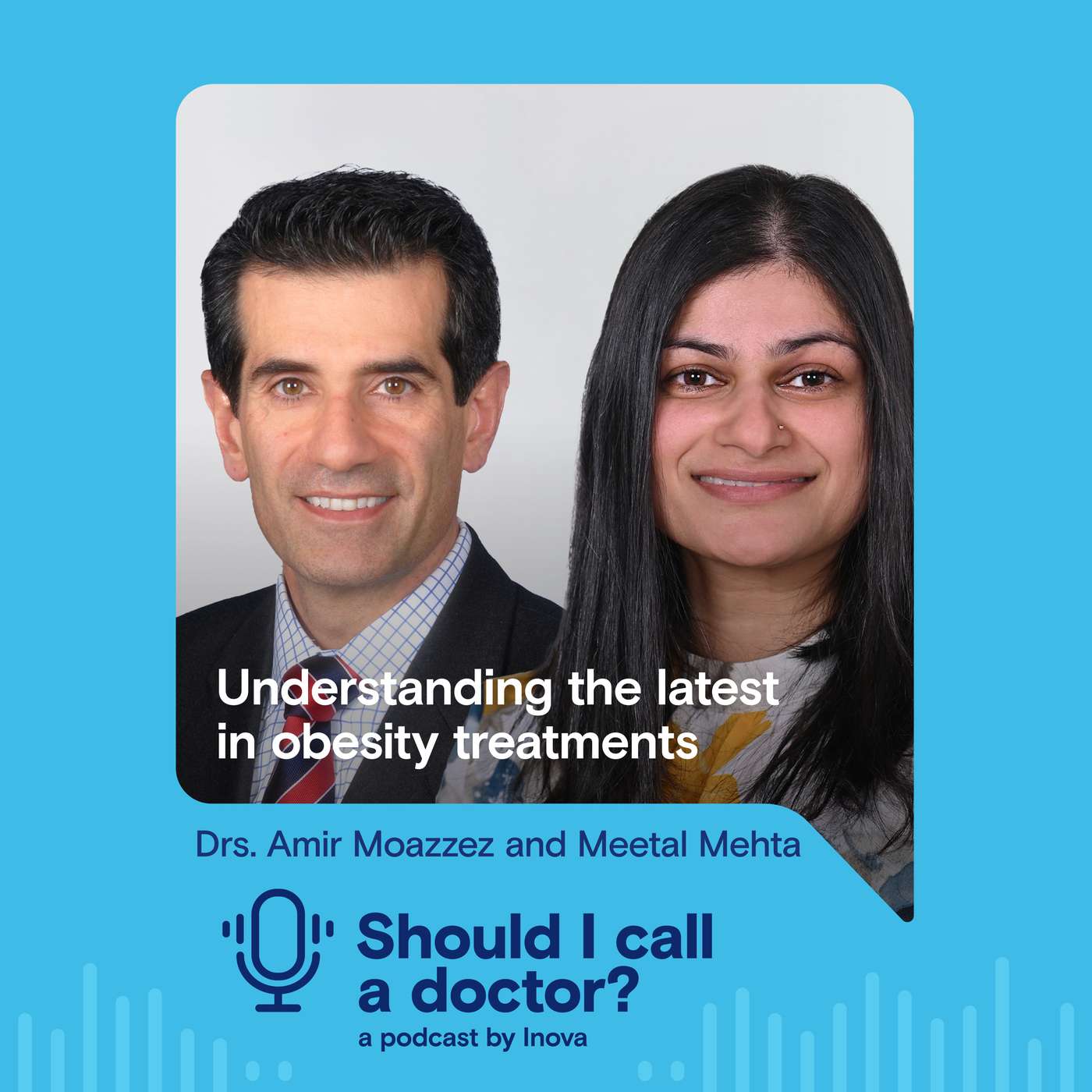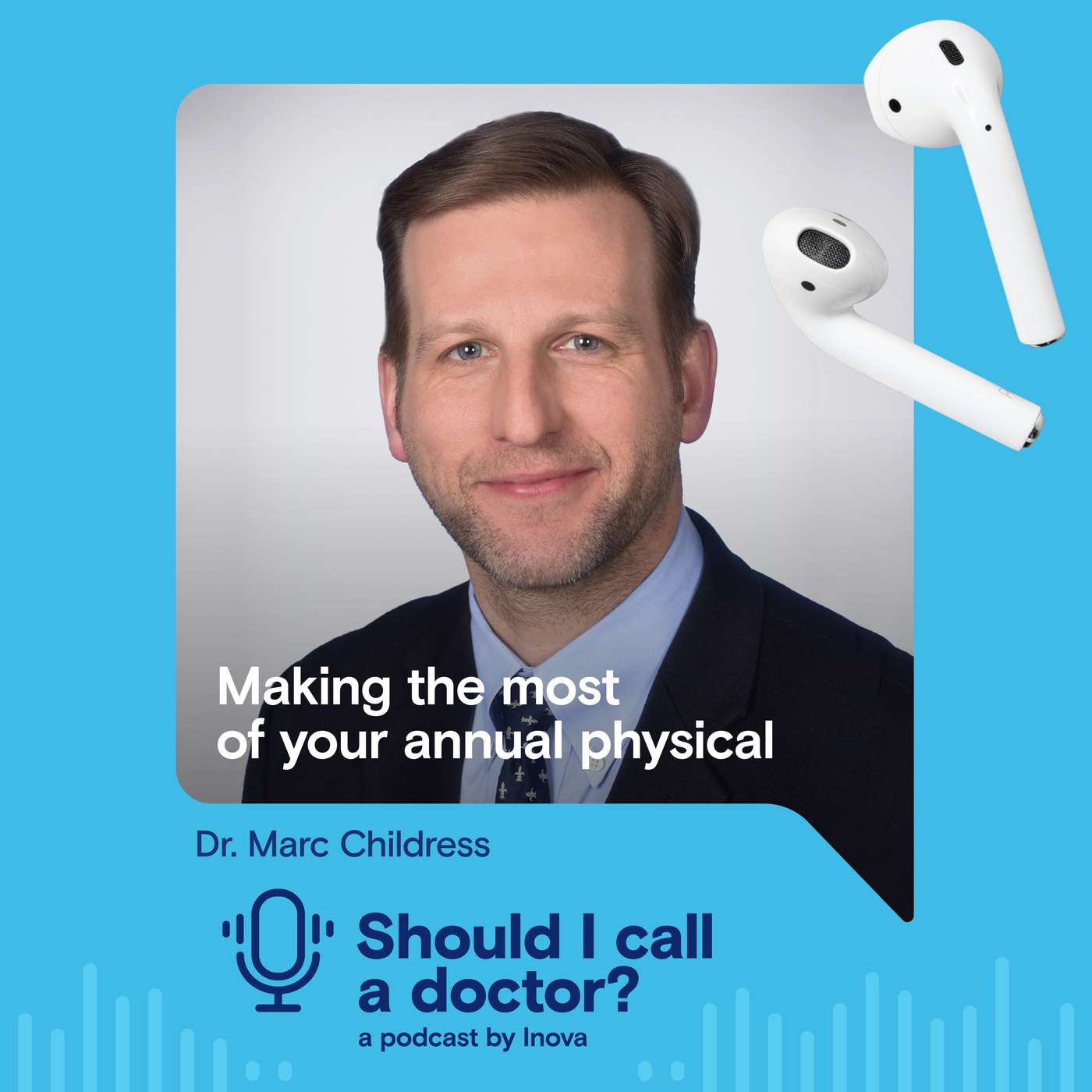Discover Should I Call a Doctor?
Should I Call a Doctor?

Should I Call a Doctor?
Author: Inova
Subscribed: 2Played: 9Subscribe
Share
© 2026 Inova
Description
Welcome to “Should I Call a Doctor?” The podcast where we dive into trending health topics to separate fact from fiction. We bring in experts to talk about all things health, to empower you with knowledge and answer your questions hosted by Inova Health.
15 Episodes
Reverse
What you’ll learn:Getting a good night's sleep is super important for your health, helping your body and brain recharge. In this episode, we sit down with Dr. Eric Sklar, a board-certified neurologist who specializes in sleep and brain health. He breaks down what makes for great sleep and shares some easy tips to enhance your nightly routine for better rest. We also go over common sleep issues, like sleep apnea, and talk about sleep studies, the pros and cons of wearables and more. Tune in for practical advice and insights that can help you get those much-needed ZZZs.Featured guest: Dr. Eric SklarNeurologistMedical DirectorInova Sleep Disorders ProgramKey takeaways with chapter markers:Why getting enough sleeps matters to your health [2:06]The most common complaints related to sleep [6:16]Sleep hygiene and why it matters [8:28]Why insomnia is the most common sleep issue [14:47]Tips for getting back to sleep in the middle of the night [17:24]Common symptoms of sleep disorders, like sleep apnea [18:25]Sleep studies and how they’re conducted [26:46]The pros and cons of wearables [29:13]FAQs:How much sleep should I be getting?To ensure you are getting enough restorative sleep, aim for seven to nine hours per night and pay attention to how you feel during the day. If you often feel tired or have difficulty concentrating, consider adjusting your sleep habits or consult a healthcare professional for guidance.How can I improve my sleep quality?Practice good bedtime routines, such as sticking to a regular bedtime; relaxing 30-60 minutes before bed by reading and engaging in light stretching; avoiding all electronics while in bed, including screens; avoiding alcohol and caffeine before bed; and creating an environment conducive to sleep.What are common symptoms of sleep disorders?Daytime fatigue and sleepiness, low energy levels, waking up feeling tired, difficulty concentrating, irritability, personality changes, weight gain, reflux, and snoring are just some of the symptoms that can be the cause or result of a sleep disorder.
What you’ll learn: Get clear, practical guidance on Alzheimer’s and dementia – from early detection and treatment options to brain-health tips and caregiver support. In this episode, Inova’s Dr. Pauldurai, a cognitive behavioral neurologist, explains the differences between Alzheimer’s and other dementias, the latest treatments and the importance of early detection. Whether you're navigating your own health or caring for a loved one, this conversation offers support and insights for preventing and managing cognitive decline. Featured guest:Dr. Jennifer PaulduraiNeurologistInova Key takeaways with chapter markers:What is Alzheimer’s and how it differs from dementia [1:56]How to tell the difference between normal forgetfulness and something more serious [7:28]What does dementia care look like? [9:16]Two new Alzheimer’s drugs, Leqembi and Kisunla™, slow progression when caught early [13:22]Healthy eating and other steps you can take now to protect your brain health later [21:47]The importance of vitamin D, B12 and magnesium for brain health [23:01]Advice and resources for caregivers [24:48]FAQsWhat is Alzheimer’s disease?Alzheimer's disease is a progressive, neurodegenerative disease that occurs when nerve cells in the brain die. It is the most commonly diagnosed form of dementia. Symptoms include the loss of cognitive functioning, such as thinking, remembering and reasoning, and the loss of behavioral abilities.What causes Alzheimer’s?Scientists have made great progress in understanding Alzheimer’s in recent years. They don’t yet fully understand what causes the disease in most people but probable causes include age-related changes in the brain, along with genetic, health and lifestyle factors.Can Alzheimer’s be prevented?While Alzheimer’s disease cannot be definitively prevented, certain lifestyle changes may help reduce risk. A healthy diet, exercise, social engagement and mentally stimulating pursuits have all been associated with helping people stay healthy as they age and may help reduce risk of cognitive decline and Alzheimer’s.When should I see a doctor?When thinking problems or unusual behavior start to interfere with everyday activities, it’s time to talk to your doctor.
What you’ll learn:Should smokers and nonsmokers be screened for lung cancer? Inova Schar Cancer’s Dr. Mahajan explains what you should know about lung cancer screening, your personal history and risk factors, and groundbreaking early detection and treatment options – so you can take charge of your health. Featured guest:Dr. Amit “Bobby” Mahajan, Medical Director, Interventional Pulmonology Inova Schar Cancer Key takeaways with chapter markers:How age and smoking history guide screening [5:46-6:27]Interventional pulmonology [3:31]How lung cancer treatment is advancing [3:52]Early-stage lung cancer does not have symptoms, making detection of lung nodules critical [4:35 – 5:13]A growing number of nonsmokers are developing lung cancer. [6:59 – 7:18]Those with EGFR gene mutations have a higher instance of developing lung cancer [7:30 – 8:08]Those who have a family member who has had a nonsmoking lung cancer should also get screened [9:49 – 10:05]Inova offers a low-cost screening option. [10:16 – 10:35]In five years, over 10,000 incidental nodules were detected by Inova’s incidental lung nodule program. 1-2% were cancerous, the program helps diagnose more early stage lung cancer cases [13:30 – 15:33]Mutation analysis is key to better treatment. There are seven or eight mutations that are really actionable [16:55 – 17:14]Early-stage lung cancer can be treated with minimally invasive options, with exceptional survival rates. [18:02 – 18:10]Inova’s incidental lung nodule detection program streamlines care and dramatically reduces the time between detection and treatment [25:55-27:47]FAQsWhat is lung cancer screening?Annual lung cancer screening uses low-dose computed tomography (LDCT) to detect cancer in its earliest, most treatable stage. LDCT technology generates cross-sectional images of the body, using less ionizing radiation than a conventional CT scan. Who should be screened for lung cancer?Annual lung cancer screening is recommended for adults ages 50 to 80 who have a 20 pack-year smoking history and currently smoke, or have quit within the past 15 years. Should I be screened if I have a family history of lung cancer?If you have a family history of lung cancer you should discuss your risk factors with your doctor to determine if screening is right for you. You can also take our online Lung Cancer Risk Assessment What are the benefits of lung cancer screening?Screening can detect lung cancer at an earlier stage when it is more treatable. Leading to higher survival rates and a better quality of life.
What you’ll learnConfused about when to start breast cancer screening, what breast density means, or whether you need genetic testing? Inova’s Dr. Kaltman explains risk, red-flags, and next steps—so you know which care to choose and how personalized risk assessments are reshaping early detection.Featured guest:Dr. Rebecca KaltmanExecutive DirectorInova Saville Cancer Screening and Prevention Center ________________________ Key takeaways with chapter markersHow age, family history (maternal & paternal), and red flags guide screening (13:50)What dense breasts mean and when to add supplemental imaging (19:06)When to consider genetic counseling/testing and how group sessions work (5:06)Where primary care fits for lifestyle/metabolic risk and referrals (8:21)Imaging choices (mammogram, MRI, ultrasound, contrast-enhanced) (10:04)Mobile screening (23:45)Multi-cancer blood test clinical trial at Inova (24:52)________________________ FAQsWhen should most women start screening? Most begin at age 40, but earlier for higher-risk patients (often 10 years before the youngest family diagnosis). Ask your Primary Care doctor/OB-GYN for a formal risk assessment. Do dense breasts change my screening plan? Possibly. Dense tissue can mask findings on mammography; your clinician may recommend supplemental imaging (e.g., MRI; ultrasound or contrast-enhanced mammography when appropriate). Who should consider genetic counseling/testing? Anyone with strong family history (maternal or paternal), early cancers, or unknown history. Testing now uses multi-gene panels and is far more accessible than in the past. Are self-breast exams still recommended? Be breast-aware and know your normal, but routine self-exams alone are not enough. Report new changes (lump, nipple retraction, rash, contour change). Can lifestyle changes reduce risk? Yes—weight, activity, and nutrition matter. Primary care can connect you with dietitians/health coaching and, when needed, medical weight-loss support.
Your digestive system plays a crucial role in overall health. But when something feels off, it can be both confusing and uncomfortable.In this episode, we're joined by Neha Nigam, MD, for a conversation about gastrointestinal (GI) health and common conditions such as acid reflux, irritable bowel syndrome (IBS), inflammatory bowel disease (IBD), and more.Whether you're curious about how your gut works or dealing with chronic digestive issues, this episode offers practical insights to help you better understand and support your GI health.
A cancer diagnosis doesn't just impact the patient, it affects everyone who loves and supports them. Whether you're a caregiver, family member, or friend, the moment you hear that someone close to you has cancer, it can feel overwhelming. In this episode, we explore what it means to navigate life when a loved one is diagnosed with cancer. We're joined by Jennifer Bires, MSW, LCSW, OSW-C, Executive Director of Inova Peterson Life with Cancer and a leader in psychological oncology with over 15 years of experience designing patient and family-centered support programs.Jennifer shares insights and actionable steps to help you be present, compassionate, and resilient—whether you are providing hands-on care or simply showing up in meaningful ways. Learn how the Peterson Life with Cancer team of behavioral health therapists, social workers, nurse navigators, and oncology dietitians are making support more accessible and why no one has to go through this alone.
In this episode, we take you inside Child Life Services at Inova, shining a light on the dedicated Child Life Specialists who support children and their families through some of their most vulnerable moments. Our guest, Jamie Gentille, System Director of Child Life Services and Community Engagement at Inova, answers common questions and gives an in-depth look at how she and her team help young patients navigate the emotional and psychological challenges of hospitalization or during an exam or procedure.Whether you're a parent, caregiver, or medical professional this episode offers a moving and informative look into a role that blends clinical understanding with compassion and creativity. Tune in to discover the vital role Child Life Specialists play in pediatric care!
In this episode, we're tackling an important topic—colon cancer, particularly its rise in younger adults. We are joined by Tim Cannon, MD, Sheridan Director, Molecular Tumor Board and Co-Director of the Gastrointestinal Cancer Program at Inova. Dr. Cannon breaks down the latest in colon cancer prevention, screening, and clinical research. KayAnn Schoenman, one of Dr. Cannon’s former patients, shares her personal journey of being diagnosed with colon cancer at age 40, and becoming an advocate. With our co-hosts, they discuss the importance of early detection, debunk common myths, and offer hope to those facing a similar battle. Whether you're looking for medical knowledge or personal inspiration, this conversation is one you won’t want to miss!
What you’ll learn:In this episode, we dive into the incredible impact of blood donation and why your contribution can save lives. Blood products are essential for treating trauma victims, cancer patients, individuals undergoing surgery, and many others – but it’s a resource that can’t be manufactured, only donated. Nick Lilly, MBA, Senior Director of Inova Blood Donor Services, joins us to discuss why blood donation is a cornerstone of healthcare. If you’d like to make a lifesaving impact, make an appointment today at an Inova Blood Donor Center near you. Featured guest:Nick Lilly, MBASenior DirectorInova Blood Donor Services Key takeaways with chapter markers:Addressing common objections to donating blood [1:25]Blood is critical for many types of treatments and cannot be manufactured [2:44]60% of the U.S. population is eligible to donate blood [3:09]What to expect when you donate blood [3:50]Inova blood centers supply many hospitals across the DC metro region [7:06]One donation can save up to three lives [8:43]Red blood cells have a shelf life of up to 42 days [12:14]How different blood components are used [12:48] FAQsHow long does it take to donate blood?The whole donation process varies depending on the type of donation you are making, but whole blood donation generally takes no more than one hour.How often can I donate?You can donate whole blood up to six times a year, platelets up to twenty-four times a year, plasma up to twelve times a year, and double red cells up to three times a year.How do blood donations get used?Donated blood is essential for direct transfusions to patients during surgery, trauma care, cancer treatments and to help those living with chronic conditions. Blood transfusions replace lost blood during traumatic situations and surgical procedures and also support patients undergoing treatment for cancer and other conditions by helping to maintain blood pressure, prevent excessive bleeding and bolster the immune system.Where can I donate?If you live in the Washington, DC, metropolitan area, it’s easy to make an appointment online at an Inova blood donation center near you. If you live outside the area, visit the American Red Cross to schedule an appointment or find a blood drive.
In this episode, we continue our discussion with Paula Pinell-Salles, MD, FACC, who is a co-founder of the Inova Women’s Cardiovascular program. She is board certified in cardiovascular disease and specializes in general cardiology and vascular medicine. In part 2 of this episode Dr. Pinell-Salles discusses hormone replacement therapy and a study in the news by Kaiser that showed the risk of women having one alcoholic drink per day raises their risk of heart disease. In part 1 of this episode, we uncover the unique challenges women face with heart disease and ways you can partner with your provider to prioritize your heart health. Tune into episode #4.
In this episode, we dive into what every woman needs to know about heart health, from common symptoms that often go overlooked to proactive steps you can take to protect your heart. We are joined by Paula Pinell-Salles, MD, FACC, who is a co-founder of the Inova Women’s Cardiovascular program. She is board certified in cardiovascular disease and specializes in general cardiology and vascular medicine. In part 1 of this episode, we uncover the unique challenges women face with heart disease and ways you can partner with your provider to prioritize your heart health!In part 2 of this episode Dr. Pinell-Salles discusses hormone replacement therapy and a study in the news by Kaiser that showed the risk of women having one alcoholic drink per day raises their risk of heart disease. Tune into to episode #5.
In this episode, we explore the important topic of concussions, which affects not only athletes but also parents, coaches, and anyone concerned about brain health. We are joined by Melissa Womble, PhD, a fellowship-trained neuropsychologist and Director of Inova Sports Medicine Concussion Program and co-director of the Inova Concussion Program. Dr. Womble specializes in concussion research and treatment. In this episode, we address common misconceptions about concussions and provide clarity on this often misunderstood subject.
What you’ll learn:Join us as we break down the stigmas surrounding obesity and explore various weight loss options – both surgical and nonsurgical. We’ll discuss the benefits and risks, and how to choose the right one for you. Inova’s Dr. Moazzez, a board-certified bariatric surgeon with extensive experience in weight loss surgery, and Dr. Mehta, a board-certified obesity medicine specialist focused on nonsurgical treatments, share insights into the latest treatments and why we should be openly discussing obesity as a disease. Featured guests:Dr. Amir MoazzezSurgeonInova Weight Loss Surgery Dr. Meetal MehtaInternal medicine physicianInova Weight Loss Services Key takeaways with chapter markers:Why obesity is considered a disease [3:50]How it underlies many other conditions like diabetes, hypertension, high cholesterol, heart disease and cancer [4:55]How to determine if weight loss surgery is the right option for you [9:44]How to determine if you are a candidate for weight loss drugs [10:50]The many weight loss options available [22:12]The importance of receiving a whole plan of care and ongoing support [24:26]How it’s about more than a number on a scale, it’s about your whole health and feeling better [29:33]FAQsWhat is weight loss surgery (bariatric surgery)?Weight loss surgery, also known as bariatric surgery, is a medical procedure performed on individuals who are severely overweight or obese and have not been successful in losing weight through other methods such as diet, exercise and medication. The primary goal of bariatric surgery is to reduce the size of the stomach or modify the digestive system in a way that promotes weight loss. Am I eligible for weight loss surgery or medication?Qualification for either typically depends on several factors, including body mass index (BMI), weight-related health conditions, previous weight loss attempts, overall health and commitment to lifestyle changes. How much weight can I expect to lose?Weight loss outcomes can vary widely from person to person, and individual results may differ based on factors such as age, gender, starting weight, metabolic rate, dietary habits, physical activity level and adherence to guidelines. Regular follow-up with healthcare providers and ongoing support are essential for achieving and maintaining weight loss goals over time. How do I get started?Whether you’re considering medication or surgery, your primary care doctor can help you decide or refer you to a specialist.
What you’ll learn: Join us as we dive into the often-overlooked star of our healthcare journey: the annual physical. Inova's Dr. Childress, a dedicated primary care physician, shares insights on how this vital checkup is more than just a routine appointment. It's a powerful opportunity to cultivate a lasting relationship with your doctor and establish a solid foundation for your health. Together, we'll explore how to make the most of this visit. Featured guest:Dr. Marc Childress PhysicianInova Primary Care Key takeaways with chapter markers:Why your annual physical is key to your health and shouldn’t be missed [1:08]How coming prepared with questions can uncover important issues [5:22]Why this is the time to discuss your health goals for the coming years – from immunizations and cancer screening to lifestyle issues like sleep, exercise, alcohol consumption and smoking [8:10]The importance of depression screening and how to talk to your doctor about you mental health [9:21]How self-care – rest, exercise and eating well – are still the most powerful medicine [16:52]FAQsWhat is primary care?Your first point of contact for your overall health and wellbeing – primary care doctors help you prevent diseases, manage long-term conditions like diabetes, treat common illnesses and injuries, and can refer you to specialized care when needed.What should I expect at my annual checkup?This comprehensive appointment, typically between 20 and 30 minutes long, is an opportunity for your doctor to get to know you better and establish a baseline for your health. During the visit, you’ll undergo a physical exam, which may involve checking your heart rate, blood pressure and other vital signs. Additionally, your doctor will review your recent health and family history, discuss your lifestyle habits and recommend any necessary screenings. Overall, this visit helps outline your care plan for the upcoming years.Who should get an annual physical?Annual physicals, or checkups, are recommended for people of all ages, though the frequency and focus changes with age. For children and teens, annual checkups are essential for monitoring growth, development and mental health. For adults ages 18 to 39, yearly physicals help establish a health baseline, encourage healthy habits and identify risks early. For adults aged 40 and older, annual physicals can focus more on screenings for cholesterol, early signs of diabetes and various cancers.
Welcome to “Should I Call a Doctor?” The podcast where we dive into trending health topics to separate fact from fiction.



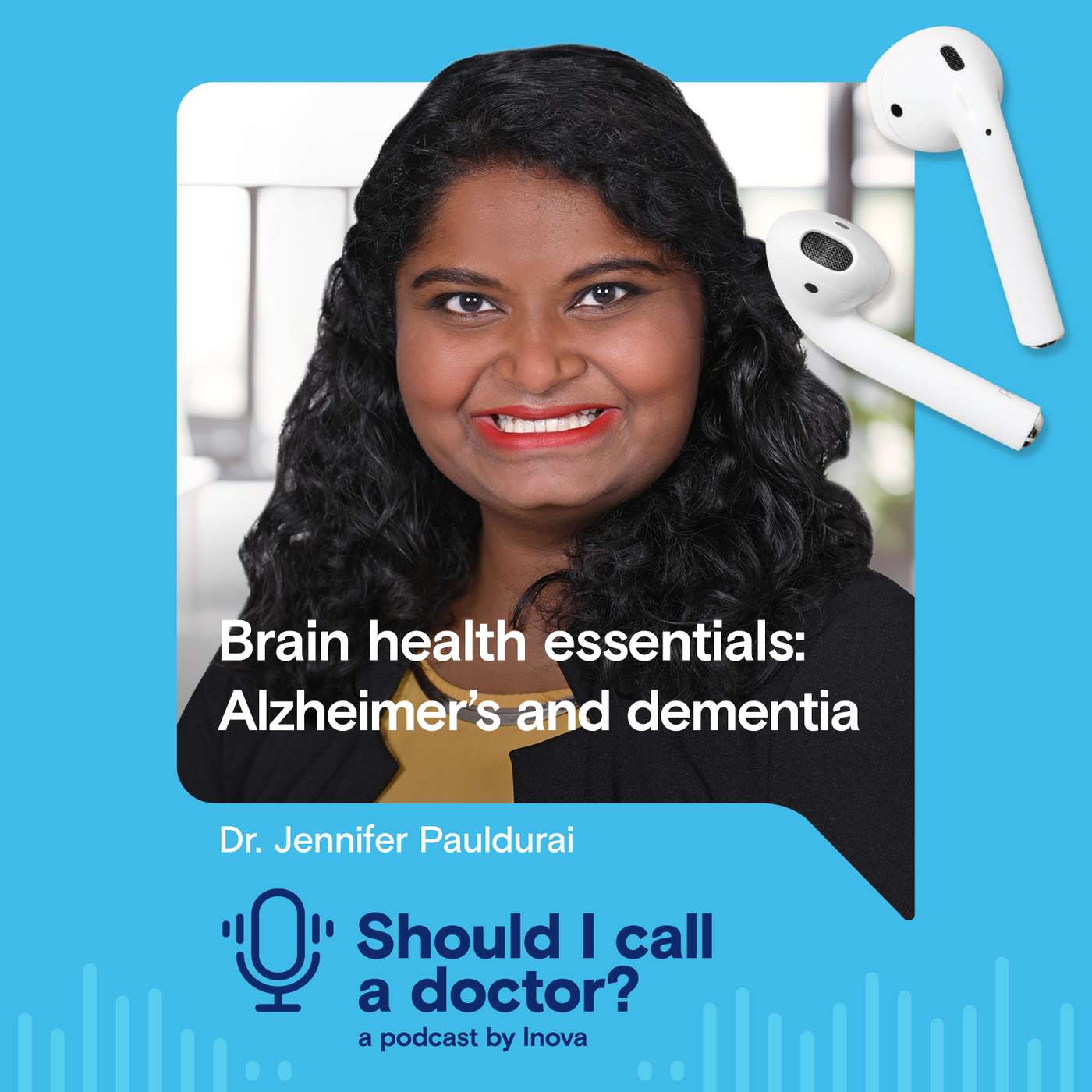
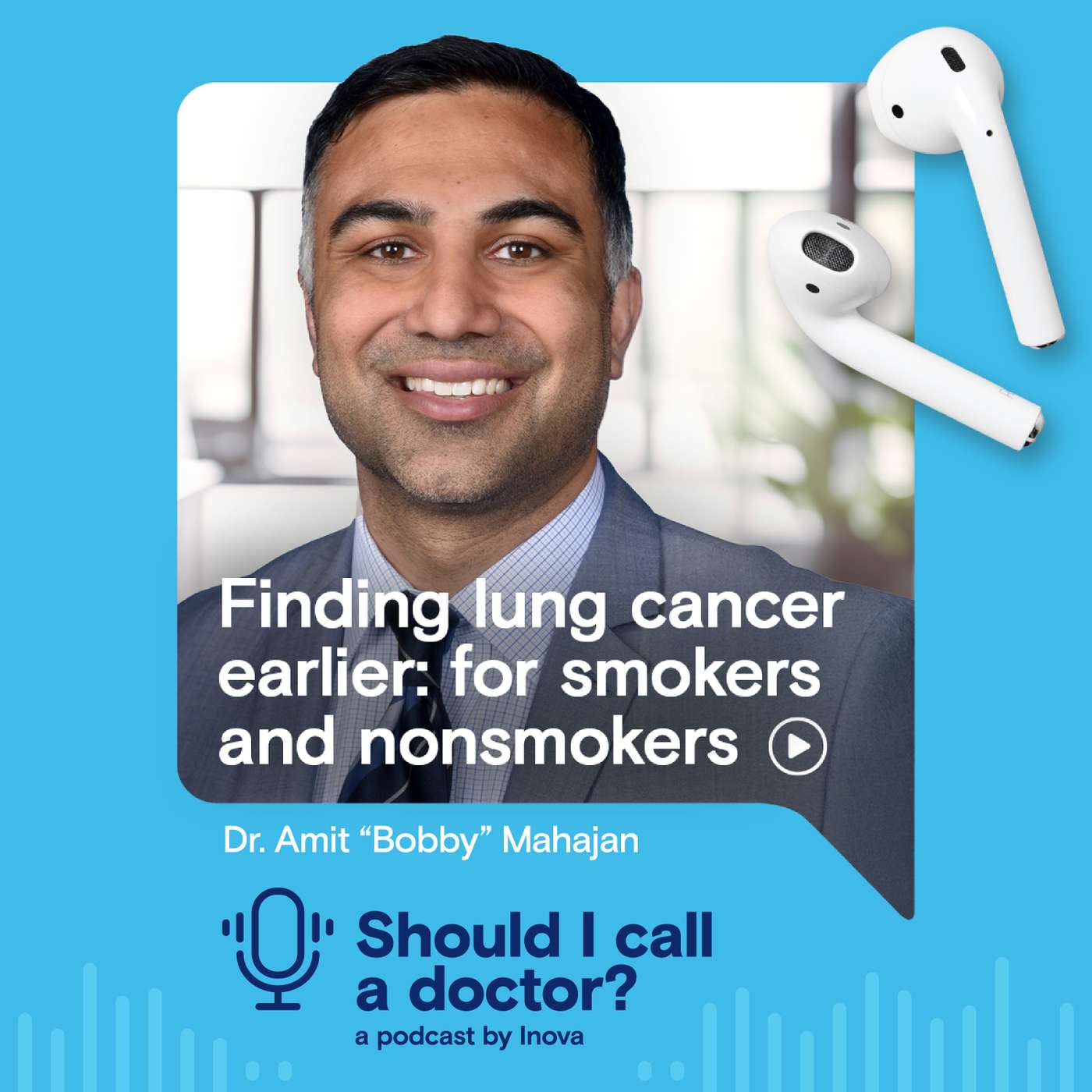
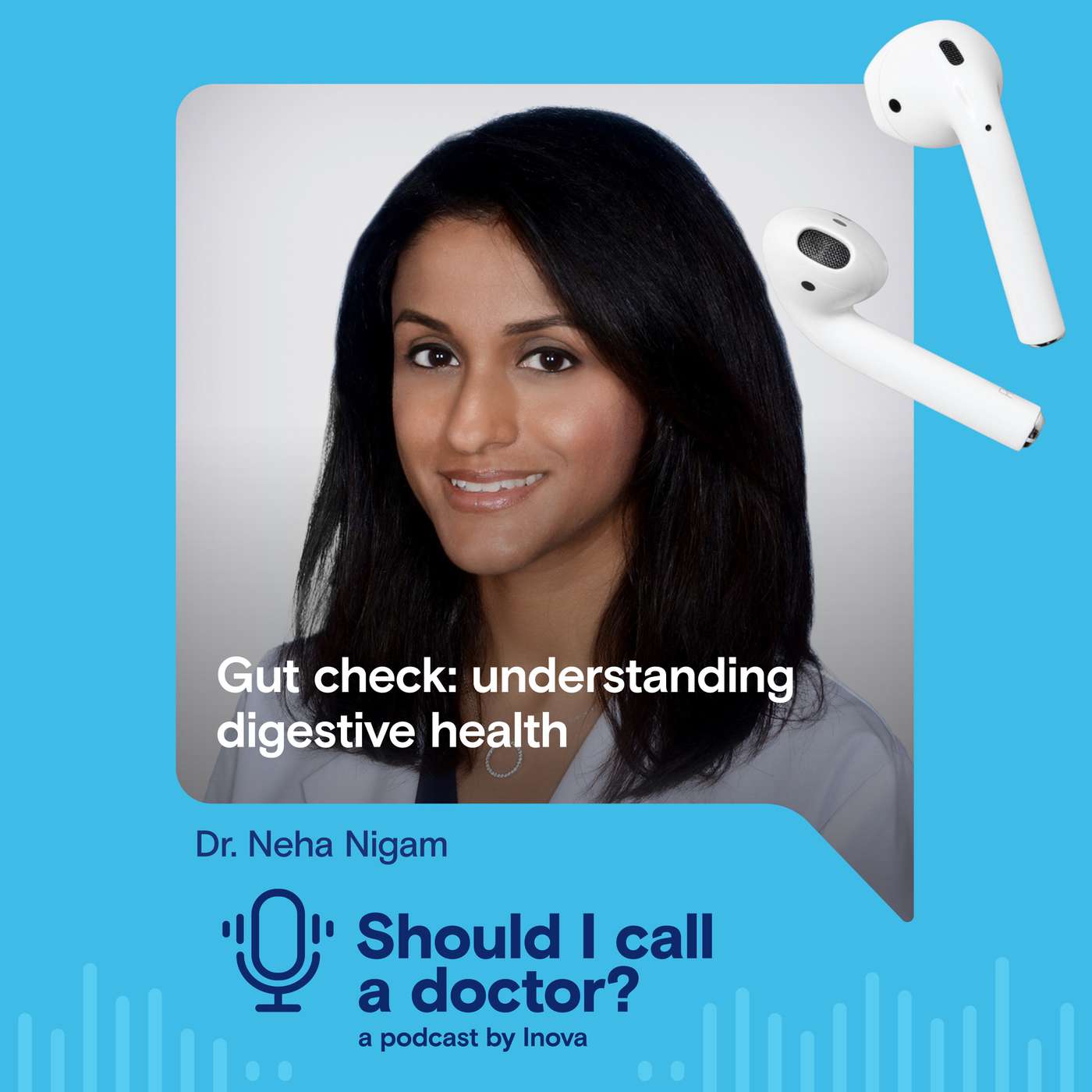
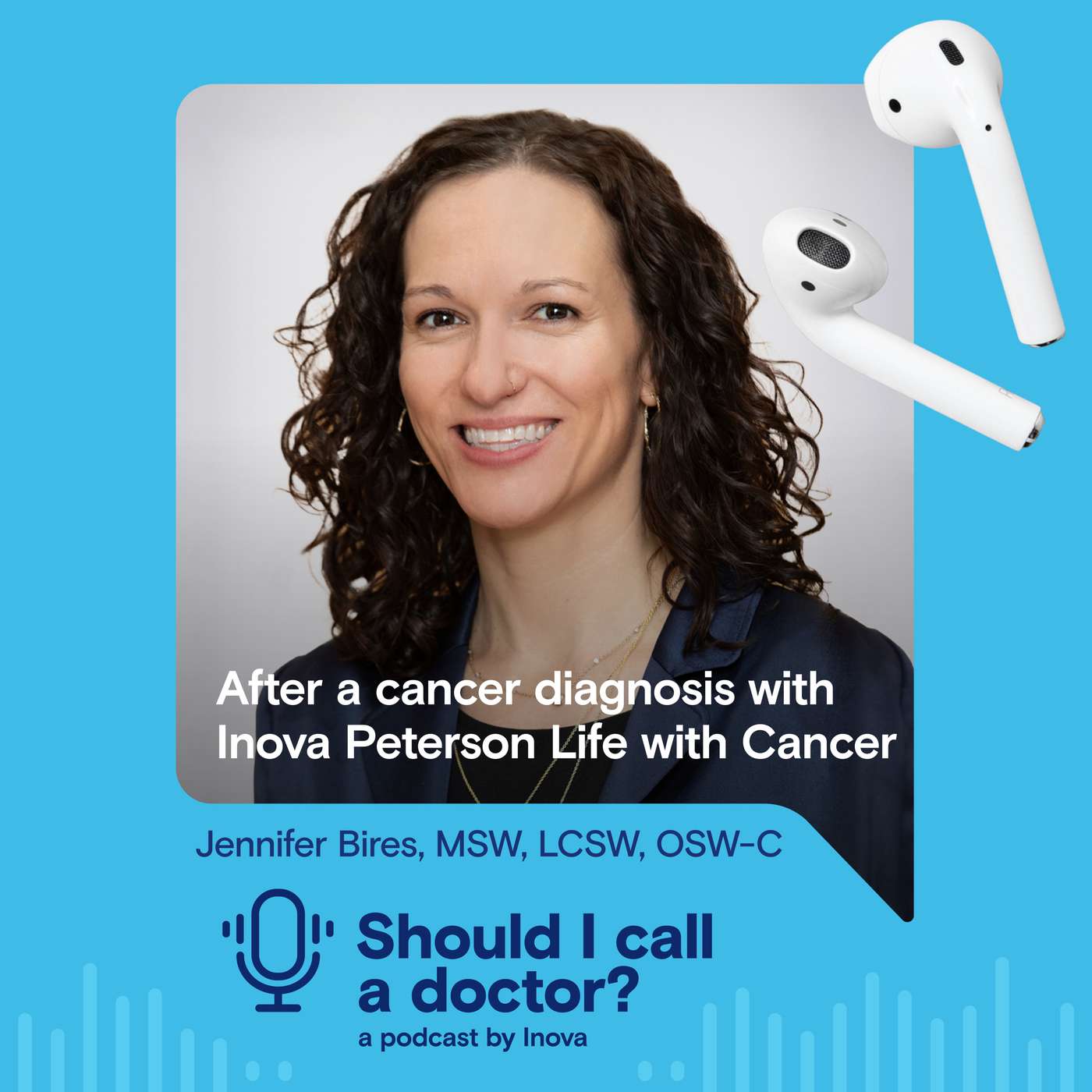
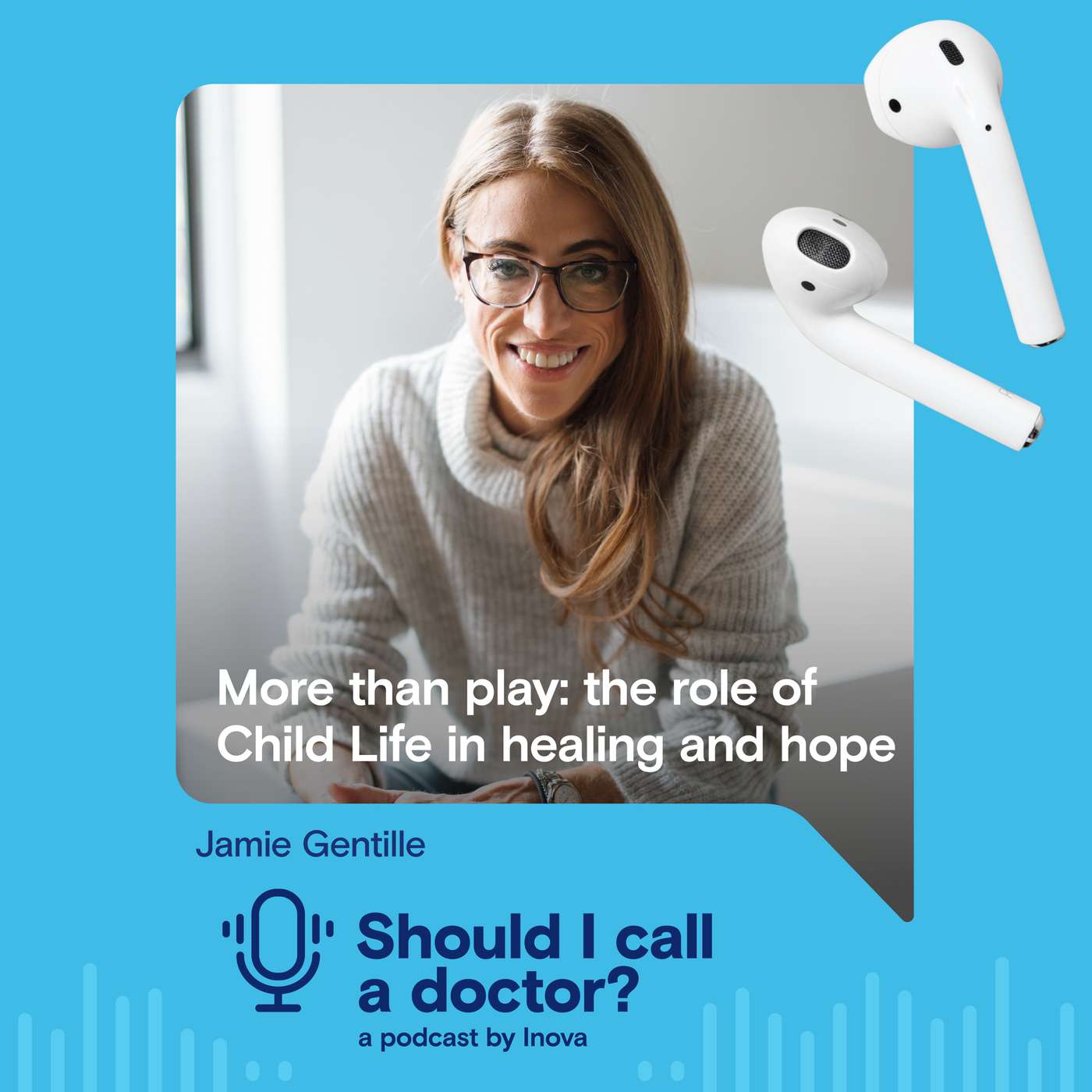
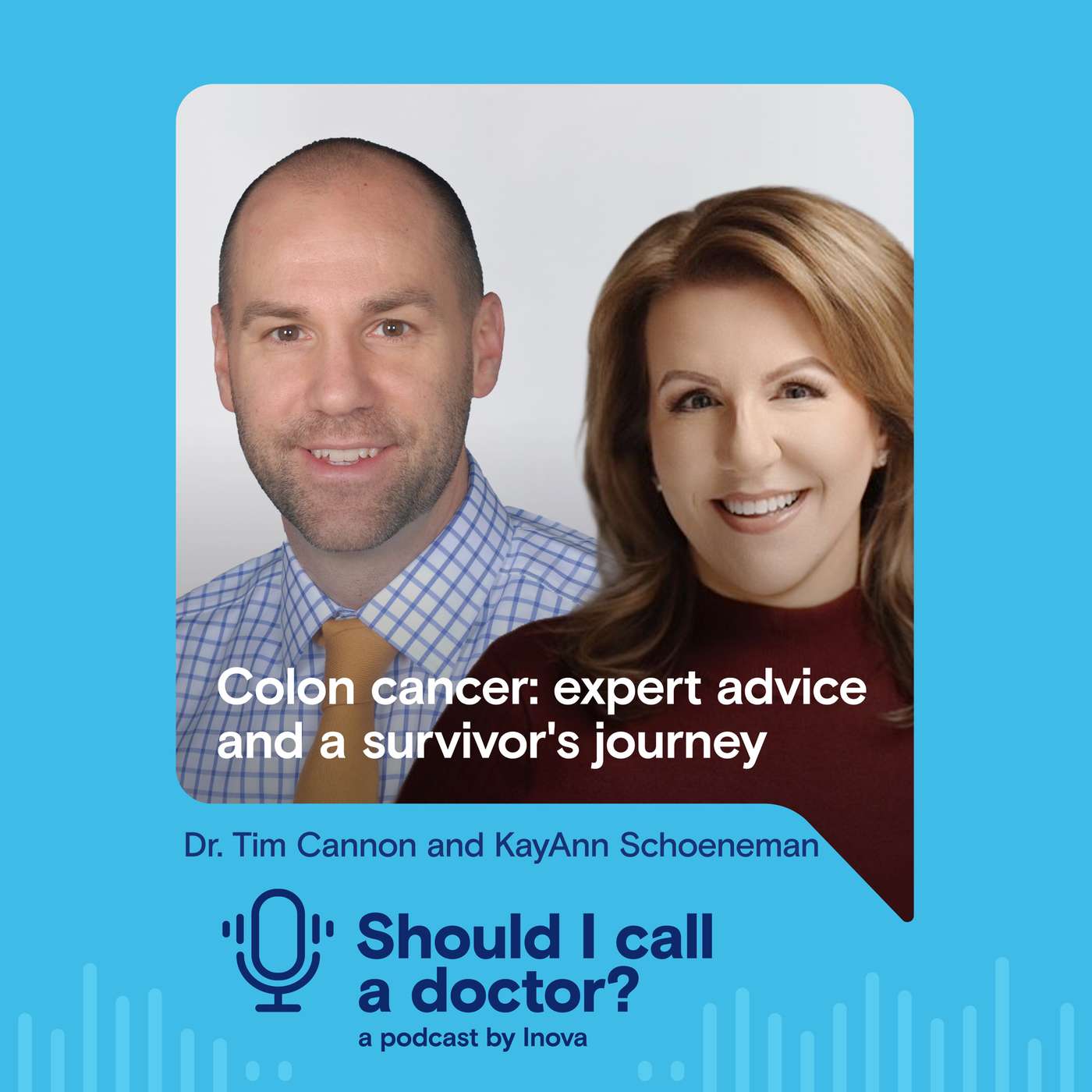
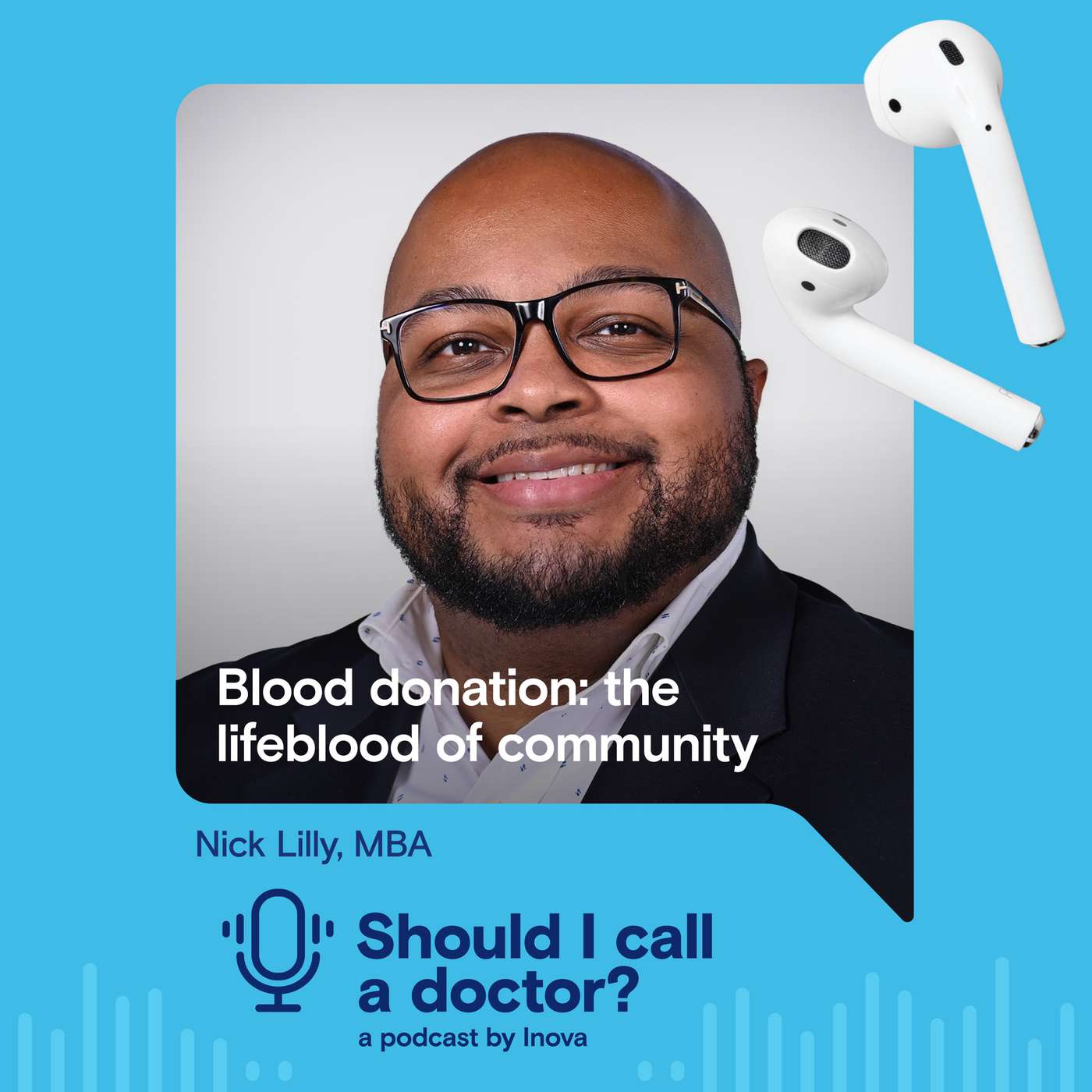
![#5: Beyond the beat — women's heart health [part 2] #5: Beyond the beat — women's heart health [part 2]](https://img.transistorcdn.com/4d5TbKQNwHJtYwRtNB1Zx3yxdFtJLVoUzmwBQv0zVSQ/rs:fill:0:0:1/w:1400/h:1400/q:60/mb:500000/aHR0cHM6Ly9pbWct/dXBsb2FkLXByb2R1/Y3Rpb24udHJhbnNp/c3Rvci5mbS81ZTQy/MWM5NmQwYjA2YTVl/MDc5NTQ0YjMxOTA3/MzRiNS5qcGVn.jpg)
![#4: Beyond the beat – women's heart health [part 1] #4: Beyond the beat – women's heart health [part 1]](https://img.transistorcdn.com/z9Xwgjtoj24o3zSmzFeLMC77AO1wiMJYbmhapLOTJAM/rs:fill:0:0:1/w:1400/h:1400/q:60/mb:500000/aHR0cHM6Ly9pbWct/dXBsb2FkLXByb2R1/Y3Rpb24udHJhbnNp/c3Rvci5mbS83MjNk/ZDFlYzI4MmNhYjA5/MmEwZDNlZjU4NGIx/YWU4OS5qcGVn.jpg)
